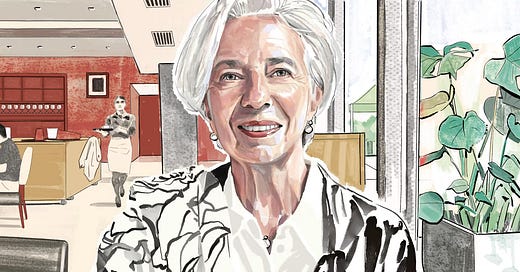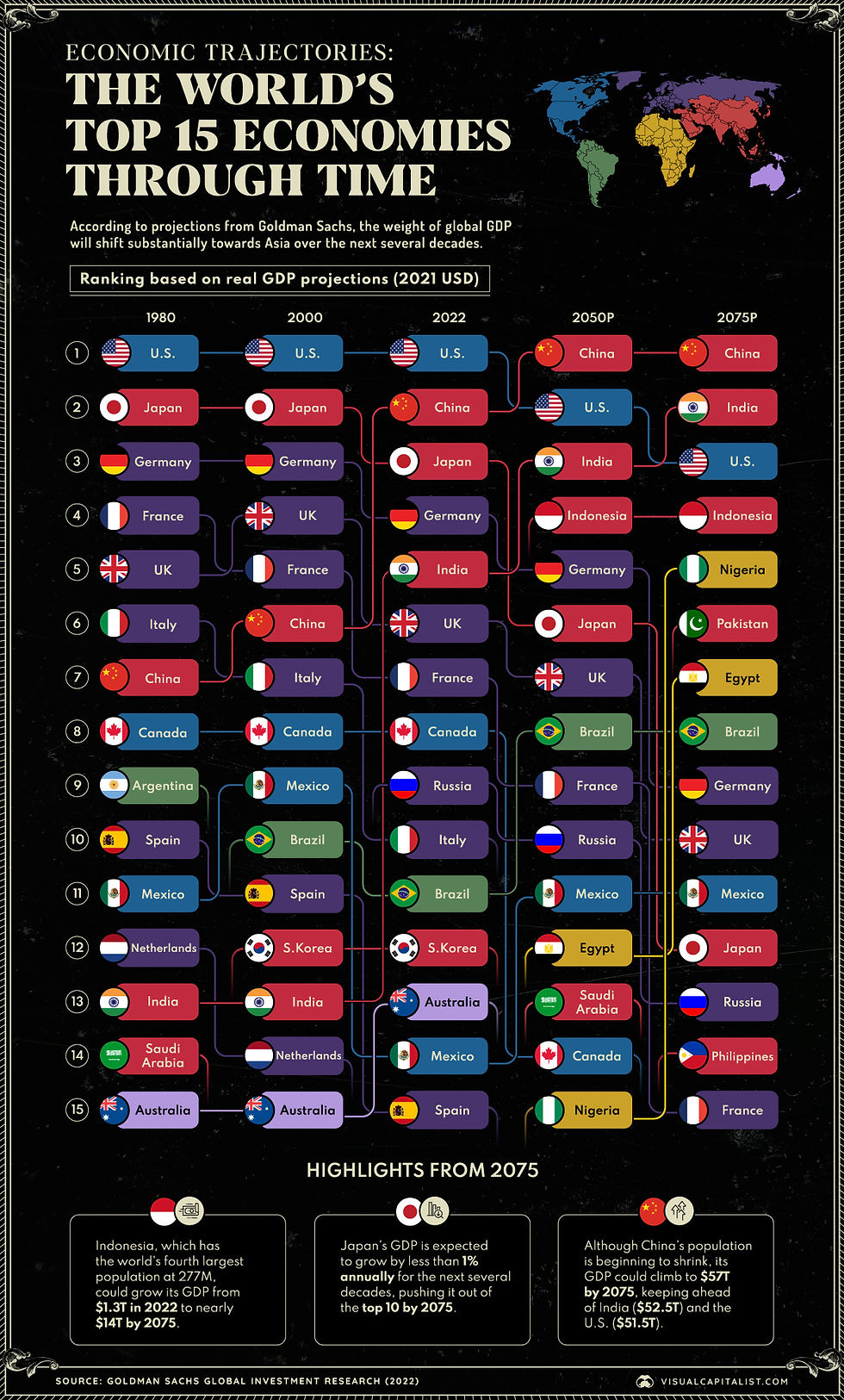Strategy 'à la Lagarde'
Finally a non-hysterical voice on Trump's threat of tariffs. Too bad that it won't work.
Christine Lagarde is a lawyer. She graduated in law and holds a master’s degree in Political Science. Her first job was at the law firm Baker & McKenzie, where she worked as a lawyer; for she is a lawyer, not an economist.
Not that being an economist would necessarily qualify someone to claim authority in economic matters—quite the contrary, as my friend Marco Annunziata mentions in this post (disclaimer: he is, in fact, an economist, as I am as well).
Yet, Ms. Lagarde has held prominent professional roles that deal directly with matters of economics: she served as the French Minister of Economic Affairs (2007–2011), the Managing Director of the IMF (2011–2019, where she was preceded by economist Dominique Strauss-Kahn and succeeded by another economist, Kristalina Georgieva), and she is currently the President of the European Central Bank (2019–present), succeeding Mario Draghi, (one of the finest) economist(s).
So, she is not an economist, but she surely learnt a thing or two about economics through managing those institutions. That’s why, when I read about her latest idea—that Europe should respond to a potential intensification of U.S. trade wars under a new Trump administration by buying more U.S. goods—I find myself wondering whether she has learned too little about economics, or perhaps too much. I haven’t decided yet. What I have decided, however, is that I don’t understand Ms. Lagarde’s idea.
On the bright side, it is laudable that Ms Lagarde brings some poise and reasoning on a debate – the possibility of Trump’s tariffs – that is becoming totally hysterical. The problem is I believe that what she suggested is not going to work. Quite the contrary.
What should we buy more from the US?
Ms. Lagarde’s disclaimer that she is not a “trade person” is as irrelevant as a lawyer landing top jobs in economics. So, she likely means it when she suggests Europe should buy more LNG and defense goods from the US. Wait—LNG? Of all the goods she could have mentioned, she chose LNG. Are we not in the midst of an environmental transition that Europe prides itself on leading better than anyone else?
Although she doesn’t explicitly say it, what I hear when she mentions LNG is this: LNG from the US, rather than from those “unstable” little countries in Asia, and LNG instead of solar technologies, which would increase our reliance on China.
If this is her repoccupation, what about CCS (Carbon Capture?) as one of the nascent European industries (Shell, Airbus,…)
And then there’s defense goods? The European defense industry is alive and thriving—companies like Airbus, BAE Systems, Safran, Rolls-Royce Holdings, Leonardo are among the sector’s fastest growing companies in the world. Why, then, should we compromise our own industry in favor of the US? And while we criticize India for increasing its reliance on Russia for defense, why should we do the same with the US—at the expense of our best companies?
Why should we buy more from the US?
Ms. Lagarde’s idea is to “negotiate, not retaliate.” Should we infer from this that the Trump administration would be so moved by Europe’s gesture of goodwill that it might spare us from its (currently vague) tariff threats? Or perhaps that they would worry tariffs might harm US companies now selling more to Europe?
Is it just me, or does the first explanation sound childish—though it aligns with Europe’s recent tendency to “appease” on most fronts?
As for the second explanation, it overlooks recent history. Trump’s first administration didn’t shy away from targeting American businesses, with both blows and public shaming: ask John Deere recently, or Carrier (2015), Amazon (2016), GM (2018), Harley-Davidson (2018), and Goodyear (2020). Trump has never been obsessed with the performance of US companies; his priority has always been ensuring they produce and sell in the US.
And if Lagarde’s “do-goodism” is really a strategy of “waiting out the four-year Trump storm,” I have bad news for her. The Biden administration has been far more protectionist than Trump ever was between 2016 and 2020. Biden’s Inflation Reduction Act (2022) has single-handedly and irreparably damaged the European car industry. The same legislation introduced the concept of “Local Content Requirements” in the West—the first law to effectively tax global supply chains and globalization.
What we should not buy?
Although Ms. Lagarde didn’t say this explicitly, by encouraging Europe to buy more from the US, she envisions a scenario where Europeans buy fewer European goods and fewer goods from Asia (and I suspect China is her primary target).On one hand, Ms. Lagarde (who, by her own admission, “is not a trade person”) seems to believe it’s a good strategy for Europe to become more reliant on other countries—at a time when the global trend is moving in the exact opposite direction: self-reliance (US with Biden and the future Trump Administration, China, India, the Middle East, etc.).
On the other hand, she seems to advocate for further severing economic ties with the East—particularly China. I have no better response to this than the figure below.
Near the end of her interview Ms Lagarde was asked about her views on the idea that Europe had became just a museum. And before answering ‘more seriously’ the questions with a long list of European privileges and paragons that - my view - her idea of buying American would expedite the demise of, she said: ‘It’s a pretty attractive museum if you ask me.”
In the coming centuries, while they taste a real, old-fashioned espresso in the cafeteria, visitors of this attractive museum could distractly glance at a Commemorative plaque that explains how this museum has come about. I am afrai=d that this idea of buying American – instead of finding political capital to spend on a real reform of the European economy – could contribute to accelerate the construction of an ‘attractive’ building for precisely such a museum.





